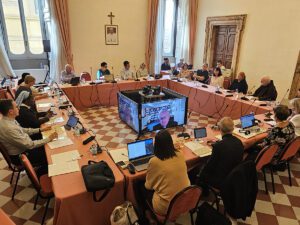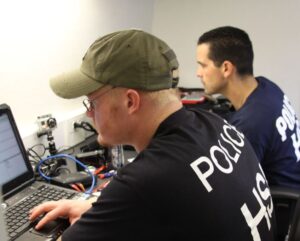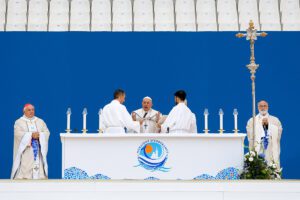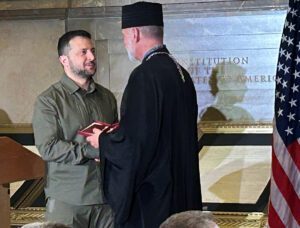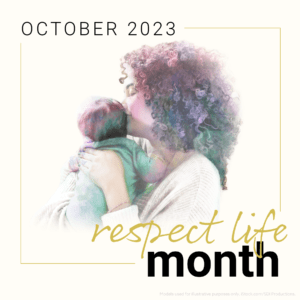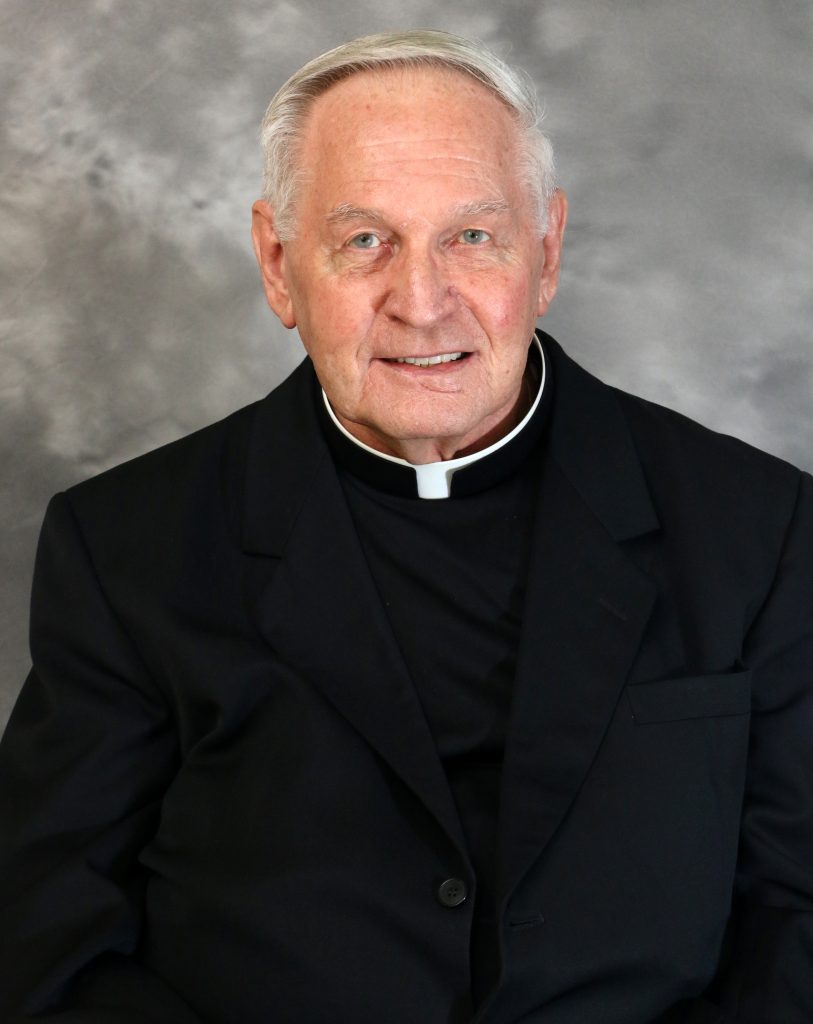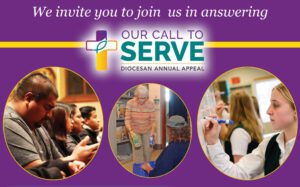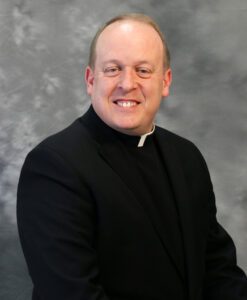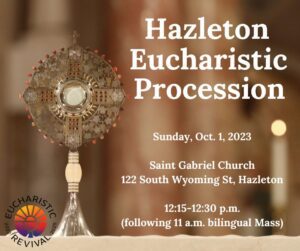
HAZLETON – Hundreds of people are expected to participate in a large Eucharistic Procession throughout the streets of South Hazleton on Sunday, Oct. 1, 2023, as part of a three-day celebration at Annunciation Parish in honor of Saint Gabriel, patron of the parish church.
Following the 11 a.m. bilingual Mass at Saint Gabriel Church, 122 South Wyoming Street, members of both the English and Spanish-speaking communities will come together to begin the procession outside of the church at approximately 12:15-12:30 p.m.
Those participating in the procession will walk for approximately a half mile, ending with Solemn Benediction back on the steps of the historic Saint Gabriel Church, recently rejuvenated through the great generosity of many benefactors and parishioners.
“The Eucharist is the source and summit of our Catholic faith. We believe it is the Body, Blood, Soul, and Divinity of Christ,” Father Kevin Miller, pastor, Annunciation Parish, said. “We are looking to bring awareness to the Eucharist, to the importance of it and how sacred it is in the church.”
The procession is being held as the Catholic Church in the United States has entered its second phase of the U.S. Bishops’ National Eucharistic Revival, a three-year initiative by the prelates to inspire belief in the Eucharist following a 2019 Pew Research study that suggested only about one-third of U.S. Catholics believe the Church’s teaching that the Eucharist is truly the Body and Blood of Jesus Christ.
The second phase of the revival, the Year of Parish Revival, is meant to foster Eucharistic devotion at the parish level.
“I want to invite everyone in the Hazleton community and beyond to bear witness to the True Presence of Jesus Christ in the Eucharist as we process through the streets of Mountain City this weekend,” Father Miller added. “We are looking to bring Christ into our everyday lives. There is nothing more powerful than having hundreds of people walking throughout the streets of Hazleton singing, praying, and pointing to Christ!”
The procession is being held on Oct. 1 in honor of the Feast Day of Saint Gabriel (which occurs annually on Sept. 29) and in celebration of El Señor de Los Milagros.
Saint Gabriel is most well known as the angel chosen by God to be the messenger of the Annunciation.
El Señor de Los Milagros (The Lord of the Miracles), is the Patron of Peruvian residents, which is celebrated during the entire month of October. El Señor de Los Milagros is traditionally one of the most popular religious celebrations in Latin America.
DIOCESE CELEBRATES HISPANIC HERITAGE WITH CATHEDRAL MASS
SCRANTON – The Cathedral of Saint Peter was filled with beautiful music and cultural pride as the Diocese of Scranton celebrated a Pontifical Mass for Hispanic Heritage Month on Saturday, Sept. 16, 2023.
Faithful parishioners of Hispanic heritage from Great Bend, East Stroudsburg, Hazleton, Wilkes-Barre, Scranton, Jermyn and beyond filled the Cathedral for the celebration. The Most Reverend Joseph C. Bambera, Bishop of Scranton, served as principal celebrant and homilist for the Mass, which was celebrated entirely in Spanish.
Following the Mass, a Hispanic Heritage celebration was held at the Diocesan Pastoral Center. Hundreds of people enjoyed food, fellowship and cultural music and dance performances. The countries represented included, but were not limited to, Mexico, Colombia, Dominican Republic and Ecuador.


